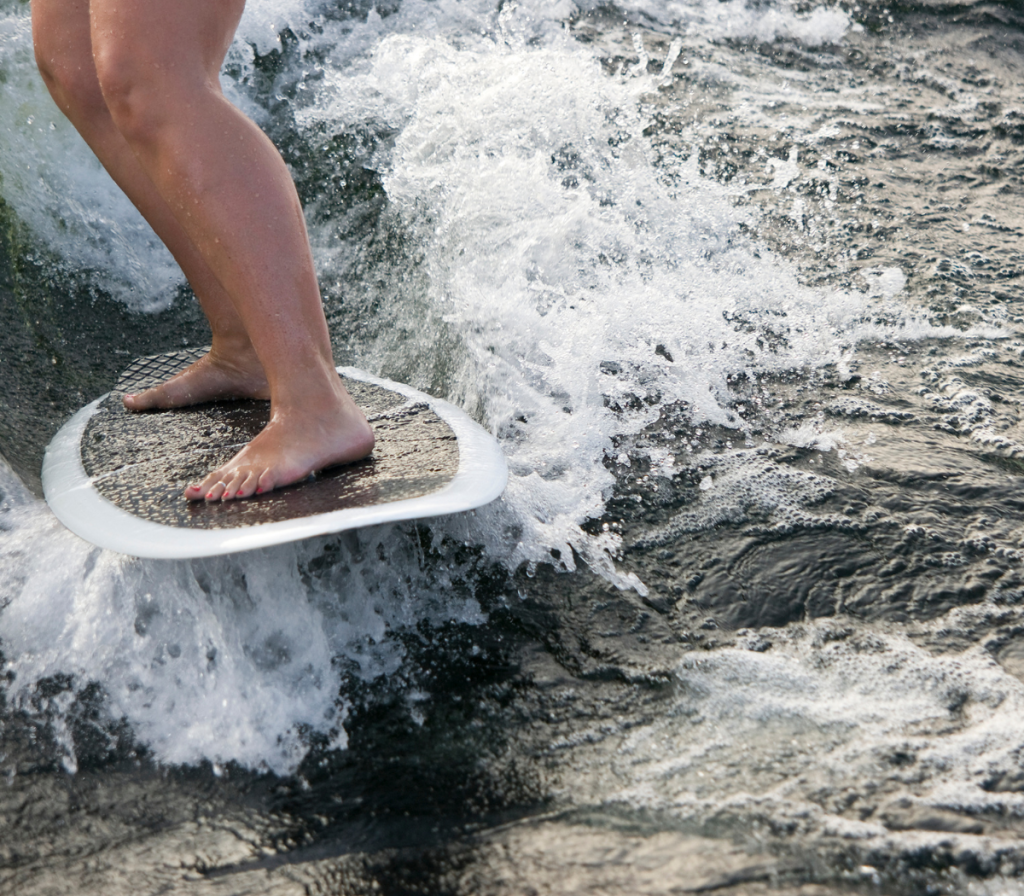In 2019 MLR began receiving reports that large wakes were creating conflicts among different lake users, eroding shoreline, and creating other problems. During the pandemic lake based recreation increased dramatically as did the sale of watercraft. Industry data shows that consumers gravitated to the ends of the boat spectrum.
Sales of large, powerful watercraft like wake surfing boats and small paddle craft like kayaks and paddle boards exploded over 30% in 2020 and 2021.
MLR works to bring together key advocates in the boating, lakes, and rivers communities to seek implementation of a mandatory boater education program for motorized boat operators in Minnesota. In the Land of 10,000 Lakes, we have more than 825,000 registered watercraft, and it is vital to keep users safe on the water and be good stewards of our lakes and rivers.
Protect Shorelines from Degradation with MLR
With record levels of recreation participation on those lakes and rivers and streams, it is more important than ever that we protect and maintain the safety and health of our aquatic ecosystems. Through a more formal boater education approach throughout Minnesota, we seek to unite the many stakeholder groups and create a strong civic partnership that will provide for recreational enjoyment, public safety, a strong lake-based economy and the long-term health of our waterways.
MLR began working with key stakeholders including lake associations, DNR, boating industry advocacy groups, angling and outdoor recreation groups in an effort to build a consensus on how to protect the values of our public waters; water quality, recreational opportunities, quality of life and our lake based recreational economy.
Previously, wake energy and the impacts of large wakes were not well understood. There was little independent peer reviewed science on the power and energy of various wake profiles and the distance wakes must travel to dissipate to harmless levels. If we hoped to educate boaters on the Best Practices to protect our shared resource, we needed a much better understanding of wake dynamics.
Research Documents the incredible power and energy of large wakes.
In 2020 MLR, MN COLA, Tonka Bay Marina, SafeWakes for Minnesota Lakes led partners from across the country to fund a wake energy study at the fluid dynamics lab at the University of Minnesota’s St. Anthony Falls Laboratory within the Science and Engineering Department.
The full report on the findings was issued on Feb. 1, 2022 and will inform the creation of best practices so that boaters know how to operate in a way that does not damage the resource. These Best Practices should inform any boater’s education curriculum and certification included in MN’s You can access the full report and data here:

The St. Anthony Falls Laboratory (SAFL) at the University of Minnesota has launched a three-phase study called Healthy Waters to investigate how boat wakes and propeller thrust impact lake ecology.
Phase 1
Phase 2
This initial phase lays the groundwork for further exploration, including the effects of propeller wash and the interaction of waves with aquatic vegetation.
Healthy Waters Initiative Project Updates
September 18, 2024:
“We have heard from many of you inquiring about the status of our Phase 2 report, which is focused on propeller wash impacts of recreational boating. It was one year ago that we were beginning our 2023 field campaign, and we’ve spent the last year working through the various datasets. This has been slow work as we carefully pour over the data and make sure we are employing the most robust data analysis approaches possible. Unfortunately, the report is not yet ready for release, and we are anticipating several more months of work ahead of us. Our goal for publication is now the first quarter of 2025. Once published, the report and associated data will be freely available through the University of Minnesota’s Digital Conservancy. “
Boater education saves lives.
According to U.S. Coast Guard statistics, 75% of boating fatalities occur on vessels operated by individuals without safety training, while this figure drops to just 12% for those with safety certificates. Understanding this, MLR collaborated with the boating industry to pass a law in 2022 that established a boater education and certification program—a boating license.
Currently, MLR is actively participating in developing the curriculum that will be taught to boaters in Minnesota. This curriculum emphasizes best practices for responsible watercraft operation and incorporates the latest scientific data regarding wake-enhanced boating, including the recommended 800-foot distance from shore. Education not only saves lives but also plays a crucial role in enhancing the economic and cultural vitality of our lakeside communities.
